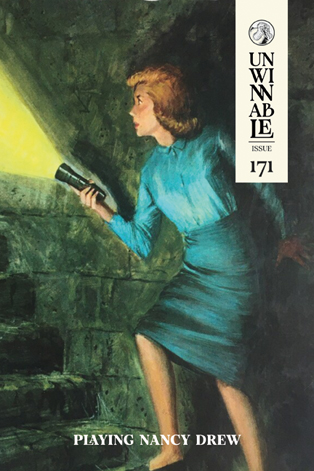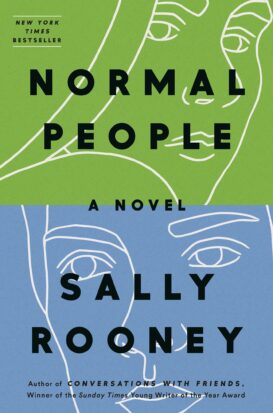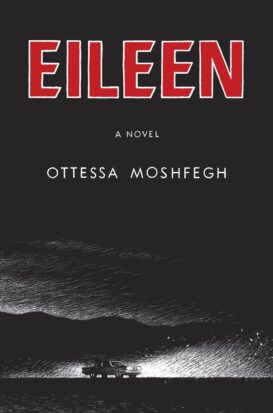
Mostly Normal People

This column is a reprint from Unwinnable Monthly #171. If you like what you see, grab the magazine for less than ten dollars, or subscribe and get all future magazines for half price.
———
Interfacing in the millennium.
———
I found myself unsettled by how much I empathized with the narrator of Ottessa Moshfegh’s My Year of Rest and Relaxation, a bored, lethargic, insular creature of expansive cynicism and casual self-absorption. Moshfegh’s a great talent at making her characters both unlikable and relatable, which I feel like I see on the internet often talked about as being impossible: a character is unrelatable because they do things you don’t agree with, or would make you feel uncomfortable, or that feel so divorced from reality that you can’t imagine a person really doing these things. Her earlier book, Eileen, starred a dirty, lazy, judgmental woman whose unpleasant home life only slightly softened the impact of her coarse worldview; My Year of Rest and Relaxation takes that to a concise extreme, as the narrator takes drug after drug in her quest to sleep for a year.
The idea of a woman manipulating a psychiatrist into giving her a nigh-unlimited supply of pills so that she can effectively hibernate is far outside the realm of what most of us encounter in our day to day life, and yet Moshfegh puts so much detail and thought into the mundanities of the narrator’s life that it can’t help but come off as potentially true: the specifics of her apartment, of her family life, of the laundry list of medicine she ingests in order to keep herself dozing, of her obsession with Whoopi Goldberg, of her relationships with the Egyptian guys at the corner store, of the dramatic implosion of her latest job, and most of all of Reva, her best friend, who she doesn’t particularly like, the truth and reality of whose character cuts like a knife through the story, as the narrator barely hides her annoyance that someone so real could come into her life and bother her like this. The narrator is not a relatable character in the way the term is often used, but the extent of her depiction, the total honesty of the nasty, selfish, lazy aspects of her personality and their frank presentation next to her deeply real tragedies and the slow decay of the world around her make her moments of being relatable even more shocking, more unsettling: could I, the reader, a normal person, be like her? Could all of us?

On the other hand, Sally Rooney’s characters in Normal People are so pedestrian, so day-to-day, that their utter relatability becomes alienating. Reading her book directly after Moshfegh’s was a mistake I made entirely on my own – the space Rooney occupies next to Moshfegh on the shelves of “sad girl fiction” or a more vague, marketable concept of millenialcore has more to do with the age of their respective protagonists and their existence in a version of the modern world than of their respective ethos as writers.
Rooney’s characters are young people moving around in the confusing modern world, graduating from high school to college, having unfulfilling relationships and friendships, trying to figure out who they are, what they’re doing, what was done to them. The situationship (if you want to call it that) between Connor and Marianne is something great swathes of people in their early twenties can see themselves in, myself included, and Rooney’s interest in exploring a relationship between two people that is genuinely complicated and indefinable is a noble goal. The problem that I found is that it was in fact the extreme mundanity of these characters – their overwhelming resemblance to parts of my own life, to parts of the lives of my friends – that made me lose sympathy for them, that made me feel like the choices they were making and the situations they were finding themselves in were, in fact, intensely unrelatable. I found Connor’s depressive passivity to be sympathetic at times, but Marianne’s masochism to be almost absurd; I could see myself in the floundering confusion of their high school years, but when they came to college became almost insulted by their terrible, terrible communication. Every time I closed the book, I saw the cover and thought: are these normal people? Is this how the people I grew up with, that I went to school with, that I see as my peers, are living their inner lives? It became shallow and repulsive in a way that even the grossest of Moshfegh’s characters never reached for me; it was so close to something I understood that its ultimate difference made it incomprehensible.

I think, when it comes down to it, it’s Moshfegh’s removal from the context of ordinary lives that makes her characters chewy; the same was true of Eileen, whose eponymous narrator’s self-aggrandizing internal life ended with the almost unremarkable murder of a woman she had only briefly met before. Eileen wasn’t as overtly satirical or as high-concept as My Year of Rest and Relaxation, but it still begged a great buy-in from the reader to accept Eileen’s situation and perspective without question. In contrast, Normal People asks for absolutely nothing: it takes for granted that the reader will meet it where it is, never challenging anything beyond the construct of its increasingly contrived, specific relationships and the lack of any satisfying progress between the two main characters.
In the past few years of weird and superficial social media-based media criticism, a character’s relatability (or, used not synonymously but often close to it, likability) is shorthand for how successful they are within their text. I’m not going to belabor the point that kids these days don’t want to engage with anything mildly upsetting; I’m simply acknowledging my own participation in this scheme that I fundamentally don’t agree with, as I sit here complaining that a book written by a woman with a life different from my own contained characters that I found irritating, unrealistic, and unsympathetic. But that sense of assumed connection between reader and story seems core to Rooney’s project, which is why I find it so hard to shake off.
In the article “Winning the Game You Didn’t Even Want to Play,” Stephan Marche gives Rooney as a core example of “literature of the Pose,” which he positions in opposition to “literature of the Voice.” His analysis gives the impression of works intended to be perceptually vulnerable but technically flawless, incapable of being too heavily criticized due to the author’s intense control; they give “the impression of fundamental futility […] language trying not to be language, with the combed-through feeling of cover letters in which a spelling mistake might mean unemployment.” This comes off at odds with their intensely personal, almost memoir-esque content, which would seem at its core to beg sympathy from their human reader. He goes on to cite Moshfegh as well, though I would argue that she borrows from the grammar of this almost-autofiction to explore satire, which to me still feels much more Voice than Pose – Moshfegh uses the language of the Pose, the precision and mundanity of a particular contemporary, hip style of writing, to lure the reader into an assumed understanding and then pull them into places they’d never voluntarily go. Rooney’s Pose, in contrast, asks nothing more by the end of her work than the beginning – the equivalent of the girl who just go to the party and is waiting for someone she knows, and until then is careful about how she stands, how she holds her drink, about the resting expression on her face, so that in the meantime the others will understand that she belongs in the room.
———
Maddi Chilton is an internet artifact from St. Louis, Missouri. Follow her on Twitter @allpalaces.




